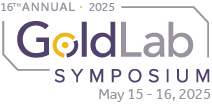

If you experience difficulty with the video you can Watch on YouTube
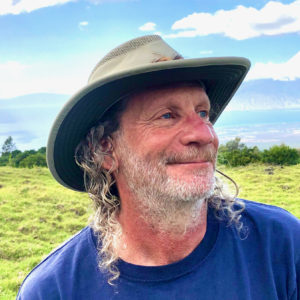
Larry Hunter is a Professor of Pharmacology at the University of Colorado Anschutz School of Medicine.
He is widely recognized as one of the founders of bioinformatics; he served as the first President of the International Society for Computational Biology (ISCB), and created several of the most important conferences in the field, including ISMB, PSB and VizBi. Hunter’s research interests span a wide range of areas, from cognitive science to rational drug design. He has published more than 100 scientific papers, holds two patents and has been elected a fellow of both the ISCB and the American College of Medical Informatics. His primary focus recently has been the integration of natural language processing, knowledge representation, machine learning and advanced visualization techniques to address challenges in interpreting data generated by high throughput molecular biology.
He received a PhD in computer science from Yale University in 1989, and then joined the National Institutes of Health as a staff scientist, first at the National Library of Medicine and then at the National Cancer Institute, before coming to Colorado in 2000.
Abstract
Abstract coming soon!
Abstract
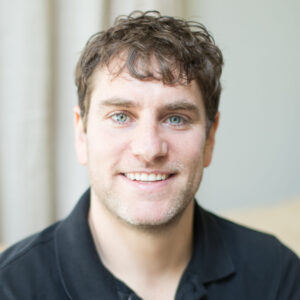 Fernbach will describe research examining the interrelationships between opposition to expert consensus on controversial scientific issues, how much people actually know about these issues and science in general, and how much they think they know. Those with the greatest levels of opposition to the consensus have the lowest levels of objective knowledge but the highest levels of subjective knowledge. Studies focus on controversial issues that enjoy a substantial scientific consensus such as climate change, genetically modified foods, vaccination, and homeopathic medicine, as well as attitudes about the COVID-19 pandemic.
Fernbach will describe research examining the interrelationships between opposition to expert consensus on controversial scientific issues, how much people actually know about these issues and science in general, and how much they think they know. Those with the greatest levels of opposition to the consensus have the lowest levels of objective knowledge but the highest levels of subjective knowledge. Studies focus on controversial issues that enjoy a substantial scientific consensus such as climate change, genetically modified foods, vaccination, and homeopathic medicine, as well as attitudes about the COVID-19 pandemic. Biography
Philip (Phil) Fernbach is an Associate Professor of Marketing and Director of the Center for Research on Consumer Financial Decision-Making at the Leeds School of Business at the University of Colorado, Boulder. He teaches data analytics and behavioral science to undergraduates and Master’s students, and is published widely in the top journals in cognitive science, consumer research and marketing.
Fernbach is co-author of The Knowledge Illusion: Why We Never Think Alone, (Riverhead Books, 2017) which was chosen as a New York Times Editors’ Pick. He has also written for The New York Times and Harvard Business Review, and his research has been featured in outlets such as The Wall Street Journal, The Washington Post, National Public Radio, and the BBC. The Society for Consumer Psychology awarded Fernbach the Early Career Award for contributions to consumer research. He received his PhD in cognitive science from Brown University, and his undergraduate degree in philosophy from Williams College.
Abstract
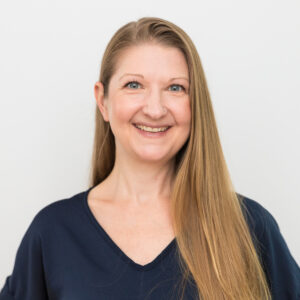 Data from wearable sensors and other digital health technologies (DHT), including Apple Watch, Fitbit, and Oura Ring, are increasingly used in health and research. Continuous data streams like these may provide more granular information about biology, physiology, and health versus sporadic, non-continuous measurements. Sensor data are ripe for AI/ML; algorithms to detect anomalies and other bio-related phenomena in wearable sensor data are being integrated into research, moving into clinical practice, and also being used for non-clinical health-adjacent applications (e.g. human performance optimization). While there is obvious progress, there are also challenges including regulatory, reimbursement, security, privacy, and equity. This talk reviews current technologies, clinical and other health adjacent use cases, availability of data and tools, investor landscape, and a discussion about barriers and strategies to overcome and realize a new future of health.
Data from wearable sensors and other digital health technologies (DHT), including Apple Watch, Fitbit, and Oura Ring, are increasingly used in health and research. Continuous data streams like these may provide more granular information about biology, physiology, and health versus sporadic, non-continuous measurements. Sensor data are ripe for AI/ML; algorithms to detect anomalies and other bio-related phenomena in wearable sensor data are being integrated into research, moving into clinical practice, and also being used for non-clinical health-adjacent applications (e.g. human performance optimization). While there is obvious progress, there are also challenges including regulatory, reimbursement, security, privacy, and equity. This talk reviews current technologies, clinical and other health adjacent use cases, availability of data and tools, investor landscape, and a discussion about barriers and strategies to overcome and realize a new future of health.Biography
Michelle Holko is a strategic innovator who works at the intersection of biology, technology, and security. She recently served as a Principal Architect and Scientist at Google, where she worked on healthcare and science solutions with Google Cloud Public Sector. Previously, Holko was a Presidential Innovation Fellow (PIF) and worked with various government agencies, including the Department of Homeland Security’s (DHS) Cybersecurity and Infrastructure Security Agency (CISA), the Department of Defense (DoD) Chemical and Biological Defense Program (CBDP), the NIH’s All of Us Research Program, HHS Biomedical Advanced Research and Development Authority (BARDA), the White House Office of Science and Technology Policy (OSTP), and the National Security Council (NSC). Holko also worked at the Defense Advanced Research Projects Agency (DARPA) and HHS BARDA’s Division of Research, Innovation, and Ventures (DRIVe) before joining the PIF program. In addition, Holko was a fellow in the 2018 cohort of Johns Hopkins University’s Center for Health Security’s Emerging Leaders in Biosecurity Initiative and served as a Staff Scientist at NIH’s NCBI, where she worked to promote re-use and re-analysis of biomedical research data.
Holko’s technical expertise lies in genomics and bioinformatics, and she has experience in research and development of capabilities for pandemic prevention and preparedness, infectious diseases, cancer, biosurveillance, biosecurity, data science, emerging technologies, digital health technologies, precision medicine, cybersecurity, and machine learning/artificial intelligence. She currently serves as the Director of U.S. Markets for Airfinity, a leader in disease forecasting and intelligence, and is building strategic alliances for UCSF’s Quantitative Biosciences Institute. Additionally, Holko is a PI at the International Computer Science Institute at Berkeley.
Abstract
Abstract coming soon!
Abstract
 Functional magnetic resonance imaging (fMRI) provides powerful tools for mapping the human brain. However, because conventional fMRI provides little information about brain function in individuals, it is rarely used for clinical applications. Given that mental disorders and neurodegenerative diseases disrupt normal thought processes, the lack of any principled method for assessing thought patterns directly presents a serious limitation to our ability to diagnose these disorders. Recent breakthroughs in individualized functional brain mapping could provide new opportunities to improve diagnosis, prognosis, and monitoring of brain disorders and neurodegenerative diseases.
Functional magnetic resonance imaging (fMRI) provides powerful tools for mapping the human brain. However, because conventional fMRI provides little information about brain function in individuals, it is rarely used for clinical applications. Given that mental disorders and neurodegenerative diseases disrupt normal thought processes, the lack of any principled method for assessing thought patterns directly presents a serious limitation to our ability to diagnose these disorders. Recent breakthroughs in individualized functional brain mapping could provide new opportunities to improve diagnosis, prognosis, and monitoring of brain disorders and neurodegenerative diseases.Biography
Jack Gallant is Chancellor’s Professor and Class of 1940 Chair at the University of California at Berkeley. He holds appointments in the Departments of Psychology, Neuroscience, and Electrical Engineering and Computer Sciences. He is a senior member of the Institute of Electrical and Electronics Engineers (IEEE) and past Chair of the IEEE Brain Community.
Professor Gallant’s research focuses on high-resolution functional mapping and quantitative computational modeling of human brain networks. His lab has created detailed functional maps of human brain networks mediating vision, language comprehension, and navigation. They have used these maps to decode and reconstruct perceptual experiences directly from brain activity.
Abstract
 For millennia, humans have used music to convey information. Songs and melodies heighten interest, facilitate comprehension, and promote long-term recall. The timing and variations in pitch and rhythm of a song lead the listener to process the information differently when compared to spoken or silently read information. Extensive research using neuroimaging highlights unique cognitive processing of content in song. Individuals with language processing challenges may benefit from sung information, but teachers and care providers may not have the time or skill to sing information during a lesson. While it is possible to pre-record and play back sung information, pre-recorded lesson plans are inflexible and cannot be rapidly tailored to individual student needs.
For millennia, humans have used music to convey information. Songs and melodies heighten interest, facilitate comprehension, and promote long-term recall. The timing and variations in pitch and rhythm of a song lead the listener to process the information differently when compared to spoken or silently read information. Extensive research using neuroimaging highlights unique cognitive processing of content in song. Individuals with language processing challenges may benefit from sung information, but teachers and care providers may not have the time or skill to sing information during a lesson. While it is possible to pre-record and play back sung information, pre-recorded lesson plans are inflexible and cannot be rapidly tailored to individual student needs.Biography
Lex Van der Ploeg is the Founder, President, Chairman, and CSO of RIFFIT, an edtech company focused on AI-enabled digital applications to advance learning and communication for diverse neurological conditions, as well as general communication and entertainment. He is also an advisor to DeuteRx, Neuromity, Rhythm Pharmaceuticals, and Board of Advisors for IRIS Kinetics.
Van der Ploeg is an experienced biotech executive, scientist, and entrepreneur, contributing to the development of novel therapeutics and successful M&A transactions. Over the past ten years, he has played a key role in the development of Rhythm Pharmaceuticals’ setmelanotide (IPO in 2017), the sale of Motus Therapeutics for relamorelin (acquired by Allergan in 2016), and the sale of DeuteRx’s DRX065 (now PXL065 following its 2018 acquisition by Poxel). He also supported the sale of Deuteria Pharmaceuticals to Celgene, the sale of Deuteria assets to Salarius, and the founding of Neuromity.
Prior to RIFFIT, Van der Ploeg was the senior vice president of integrative medicine and translational sciences at Abraxis Bioscience, acquired by Celgene in 2010. He spent 17 years at Merck, establishing and growing the Merck Boston research laboratories, discovering the ghrelin receptor, and contributing to the discovery of the target for ivermectin and the development of vorinostat. Van der Ploeg put over 15 programs into clinical development and guided programs at Banyu Res labs in Japan for ten years, and restructured the Merck San Diego laboratory. Before joining industry, he was a tenured faculty member at Columbia University in infectious diseases.
Van der Ploeg has received numerous awards, has over 250 peer-reviewed publications, and is an inventor on over 70 patents.
Abstract
Abstract coming soon!
Abstract
Abstract coming soon!
Abstract
 Generative AI systems such as ChatGPT and Dall-E are the first artificial intelligence tools broadly embraced by the public. They have been overwhelmingly popular; ChatGPT reached a million users within five days of its November 2022 release; and by January 2023 50% of Americans say they had seen AI generated text, and 12% had generated some themselves. Credible estimates suggest generative AI will produce >$1B in software and service revenue in 2023 and grow rapidly from there. This clearly disruptive technology engenders wildly divergent predictions about its impact, ranging from visions of wonder (and profit!) from its industrial champions to dire warnings of its existential risk to humanity. In this talk, Hunter will cut through the hype to address five crucial questions about this startling new technology: How does it work? Why does it work? What are its strengths and weaknesses? What is it good for (focusing on health and biomedicine)? What could go wrong? It is Hunter’s hope that a deeper understanding will ameliorate many of the most extreme concerns and suggests a path forward that reaps the potential benefits while managing the risks and guarding against harm.
Generative AI systems such as ChatGPT and Dall-E are the first artificial intelligence tools broadly embraced by the public. They have been overwhelmingly popular; ChatGPT reached a million users within five days of its November 2022 release; and by January 2023 50% of Americans say they had seen AI generated text, and 12% had generated some themselves. Credible estimates suggest generative AI will produce >$1B in software and service revenue in 2023 and grow rapidly from there. This clearly disruptive technology engenders wildly divergent predictions about its impact, ranging from visions of wonder (and profit!) from its industrial champions to dire warnings of its existential risk to humanity. In this talk, Hunter will cut through the hype to address five crucial questions about this startling new technology: How does it work? Why does it work? What are its strengths and weaknesses? What is it good for (focusing on health and biomedicine)? What could go wrong? It is Hunter’s hope that a deeper understanding will ameliorate many of the most extreme concerns and suggests a path forward that reaps the potential benefits while managing the risks and guarding against harm.Biography
Larry Hunter is a Professor of Pharmacology at the University of Colorado Anschutz School of Medicine.
He is widely recognized as one of the founders of bioinformatics; he served as the first President of the International Society for Computational Biology (ISCB), and created several of the most important conferences in the field, including ISMB, PSB and VizBi. Hunter’s research interests span a wide range of areas, from cognitive science to rational drug design. He has published more than 100 scientific papers, holds two patents and has been elected a fellow of both the ISCB and the American College of Medical Informatics. His primary focus recently has been the integration of natural language processing, knowledge representation, machine learning and advanced visualization techniques to address challenges in interpreting data generated by high throughput molecular biology.
He received a PhD in computer science from Yale University in 1989, and then joined the National Institutes of Health as a staff scientist, first at the National Library of Medicine and then at the National Cancer Institute, before coming to Colorado in 2000.
Abstract
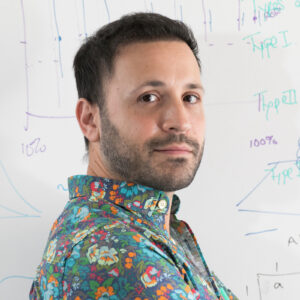 Observation is the starting point of discovery. Based on observations, scientists form hypotheses that are then tested and evaluated. In the information-age, trillions of observations are being made and recorded every day – from online social interactions to the emergency room visit. With so much data readily available, generating hypotheses using a single scientist’s mind is no longer sufficient. Instead, we must turn to computational algorithms to “mine” for new hypotheses and relationships for us. Data mining is an emerging field dedicated to training algorithms to recognize patterns in enormous sets of data to automatically identify new hypotheses.
Observation is the starting point of discovery. Based on observations, scientists form hypotheses that are then tested and evaluated. In the information-age, trillions of observations are being made and recorded every day – from online social interactions to the emergency room visit. With so much data readily available, generating hypotheses using a single scientist’s mind is no longer sufficient. Instead, we must turn to computational algorithms to “mine” for new hypotheses and relationships for us. Data mining is an emerging field dedicated to training algorithms to recognize patterns in enormous sets of data to automatically identify new hypotheses.Biography
Nicholas Tatonetti is Vice Chair of Operations in the Department of Computational Biomedicine and Associate Director of Computational Oncology in the Cancer Center at Cedars-Sinai Medical Center. He earned his PhD from Stanford University, where he specialized in developing statistical and computational methods for mining observational data. Over the last 14 years, he has applied these methods to drug safety surveillance, identifying previously unknown serious drug-drug interactions, and discovering dangerous adverse drug effects.
At Cedars-Sinai, Tatonetti’s lab uses massive-scale real clinical and molecular data to make robust and validated scientific discoveries, with a specific focus on detecting, explaining, and validating drug effects and drug interactions. He has published over 180 peer-reviewed scientific publications in medicine, systems biology, machine learning, and bioinformatics. He is passionate about integrating real-world data, such as electronic health records, and high-dimensional biological data captured using next-generation sequencing, high-throughput screening, and other “omics” technologies, to reimagine and rescale the scientific method.
Abstract
Abstract coming soon!
Abstract
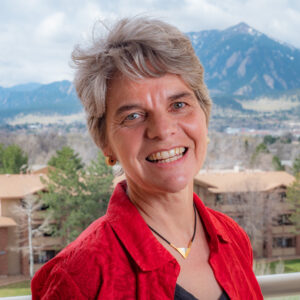 All eukaryotes organize their DNA into nucleosomes, consisting of an octamer of the four core histone proteins H2A, H2B, H3, and H4, around which 147 base pairs of DNA are wrapped in two tight superhelical turns. Histones were an early acquisition in eukaryogenesis that allowed for massive genome expansion, a prerequisite for the diversity observed in modern-day eukaryotes. They are the targets of epigenetic modifications through the incorporation of histone variants and histone post-translational modifications, and require elaborate assembly and remodeling machinery for gene regulation. Who provided the chromatin starter kit to the early eukaryote? Many archaea organize their genomes with single, non-diversified histones that form slinky-like structures, without the requirement for additional machinery to assemble and disassemble nucleosomal structures. A subclass of giant viruses (ancient double-stranded DNA viruses that infect amoebae) also encode their own histones, and these form meta-stable nucleosome-like structures with distinct features. Unexpectedly, it was recently discovered that histones are sporadically present in the bacterial domain of life. In a stunning reversal of ‘histone logic’, these small histones encase straight DNA rather than wrapping it around them. As such, histones are no longer a prerogative of eukaryotes but appear to be an ancient DNA packaging principle that has adapted to varying constraints in different domains of life.
All eukaryotes organize their DNA into nucleosomes, consisting of an octamer of the four core histone proteins H2A, H2B, H3, and H4, around which 147 base pairs of DNA are wrapped in two tight superhelical turns. Histones were an early acquisition in eukaryogenesis that allowed for massive genome expansion, a prerequisite for the diversity observed in modern-day eukaryotes. They are the targets of epigenetic modifications through the incorporation of histone variants and histone post-translational modifications, and require elaborate assembly and remodeling machinery for gene regulation. Who provided the chromatin starter kit to the early eukaryote? Many archaea organize their genomes with single, non-diversified histones that form slinky-like structures, without the requirement for additional machinery to assemble and disassemble nucleosomal structures. A subclass of giant viruses (ancient double-stranded DNA viruses that infect amoebae) also encode their own histones, and these form meta-stable nucleosome-like structures with distinct features. Unexpectedly, it was recently discovered that histones are sporadically present in the bacterial domain of life. In a stunning reversal of ‘histone logic’, these small histones encase straight DNA rather than wrapping it around them. As such, histones are no longer a prerogative of eukaryotes but appear to be an ancient DNA packaging principle that has adapted to varying constraints in different domains of life.Biography
Karolin Luger is the Jennie Smoly Caruthers Endowed Chair of Biochemistry at the University of Colorado, and a Howard Hughes Medical Institute Investigator. She is a structural biologist who is recognized for her work on the nucleosomes and on the factors that maintain chromosome integrity. The lab also studies chromatin organization in domains of life that predate modern eukaryotes, providing insight into what enabled the massive genome expansion that accompanied the emergence of eukaryotic organisms. The team also investigates the human DNA damage recognition protein PARP1 with the goal of developing novel PARP inhibitors for cancer therapy.
Karolin has a strong track record in training the next generation of scientists, both in the classroom and in the lab. She is an active contributor to the scientific community at large, through collaborative research as well as through evaluation of manuscripts, grants and academic programs all over the world. She also paved the way for the acquisition of a state-of-the art cryo electron microscope for the CU Boulder campus, the only such instrument in Colorado and surrounding states, allowing the visualization of macromolecules at exquisite detail and empowering structural biologists in the region at large.
Luger was born in Austria and obtained a degree in Biochemistry from the University of Innsbruck. She earned her Ph.D. in Biophysics from the Biocenter Basel, then moved to a postdoc at the ETH Zuerich in 1990. She started her independent career at Colorado State University in 1999, and in 2015 moved to the University of Colorado at Boulder where she is now a Distinguished Professor. She is a fellow of the Biophysical Society, a member of the National Academy of Science; of the American Academy of Arts and Science; and of EMBO. She loves all outdoor activities, in particular hiking and biking.
Abstract
Physiological homeostasis becomes compromised during ageing, as a result of impairment of cellular processes, including transcription and RNA splicing. However, the molecular mechanisms leading to the loss of transcriptional fidelity are so far elusive, as are ways of preventing it. Beyer’s and Papantonis’ team profiled and analysed genome-wide, ageing-related changes in transcriptional processes across different organisms: nematodes, fruitflies, mice, rats and humans. The average transcriptional elongation speed (RNA polymerase II speed) increased with age in all five species. Along with these changes in elongation speed, they observed changes in splicing, including a reduction of unspliced transcripts and the formation of more circular RNAs. Two lifespan-extending interventions, dietary restriction and lowered insulin–IGF signalling, both reversed most of these ageing-related changes. Genetic variants in RNA polymerase II that reduced its speed in worms and flies increased their lifespan. Similarly, reducing the speed of RNA polymerase II by overexpressing histone components, to counter age-associated changes in nucleosome positioning, also extended lifespan in flies and the division potential of human cells. Their findings uncover fundamental molecular mechanisms underlying animal ageing and lifespan-extending interventions, and point to possible preventive measures.Biography
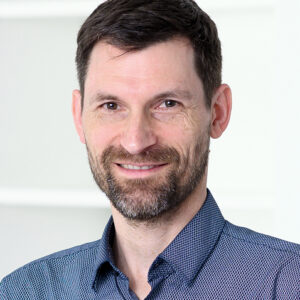
Andreas Beyer is Professor for Systems Biology at the Cologne Excellence Cluster on Cellular Stress Responses in Age-Associated Diseases (CECAD). Further, he is affiliated with the Institute of Genetics of the University of Cologne and with the Center for Molecular Medicine Cologne (CMMC). After receiving his PhD from the University of Osnabrück, he worked as a post-doctoral researcher in the teams of Thomas Wilhelm (FLI Jena, Germany) and Trey Ideker (UC San Diego, CA). In 2007, Andreas Beyer became junior group leader at the TU Dresden (Germany), and since 2013, he is a full professor at the University of Cologne.
Andreas Beyer’s research employs computational biology approaches to investigate transcriptional and post-transcriptional processes, including their changes with age and in diseases. His work has contributed numerous approaches for the computational analysis of high-throughput molecular data and has led to discoveries regarding the regulation of protein levels and age-associated changes of the transcriptional process.
since 2013: Professor of Systems Biology at the University of Cologne, Germany.
2007 – 2012: Group leader at the Biotechnology Center, TU Dresden, Germany.
2005 and 2006: Stay at UCSD (Trey Ideker), La Jolla, USA
2002 – 2006: Post-Doc at the Leibniz-Institute for Age Research, Jena (in the group of Dr. Thomas Wilhelm) and at the University of California San Diego (in the group of Prof. Trey Ideker).
2000: Stay at the Canadian Environmental Modelling Centre (Donald Mackay), Peterborough, Canada
1999 – 2002: Research associate at the Institute of Environmental Systems Research, Osnabrück. Tutor for courses Introduction to System Science, Environmental Systems Analysis, and Environmental Risk Assessment.
1999 – 2002: Ph.D. at University of Osnabrück, Germany; graduated with distinction (summa cum laude)
1998 – 1999: Stay at the Canadian Environmental Modelling Centre (Donald Mackay), Peterborough, Canada
1996 -1997: Research at the International Institute for Applied Systems Analysis (IIASA), Austria
1993 – 1999: Study of Applied Systems Science, University of Osnabrück
Biography
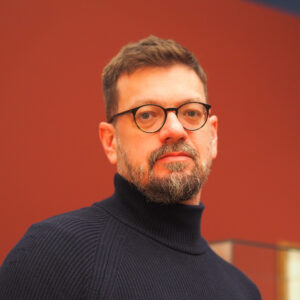
Argyris Papantonis is the Chair of Translational Epigenetics at the University Medical Center Goettingen, Germany. He was born in 1978 in Athens, Greece, and completed his Biology degree and PhD at the National & Kapodistrian University of Athens. After a postdoctoral placement at the Sir William Dunn School of Pathology at the University of Oxford, UK, he established his own lab at the Center for Molecular Medicine, University of Cologne, Germany in 2013. In 2019, he was appointed as a Professor of Translational Epigenetics at the Medical Faculty of the University of Goettingen, Germany. His research group focuses on understanding the 3D organization of chromosomes over time and how it is impacted by aging and late-life diseases such as cancer. In addition to his scientific work, Papantonis writes and translates fiction, and his debut novella, Karyotype (Kichli Eds., 2014), received the prestigious “Anagnostis” First Book Award.
Abstract
Abstract coming soon!




